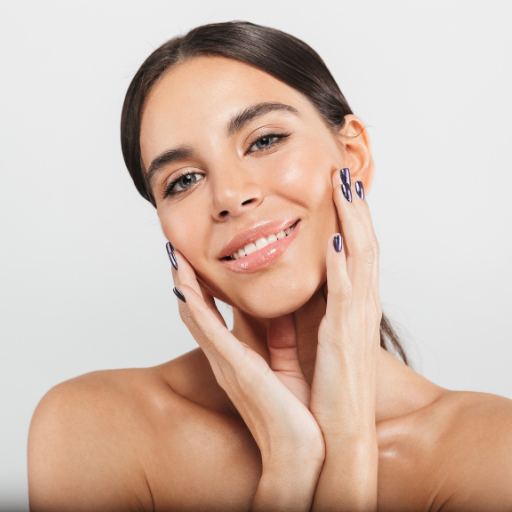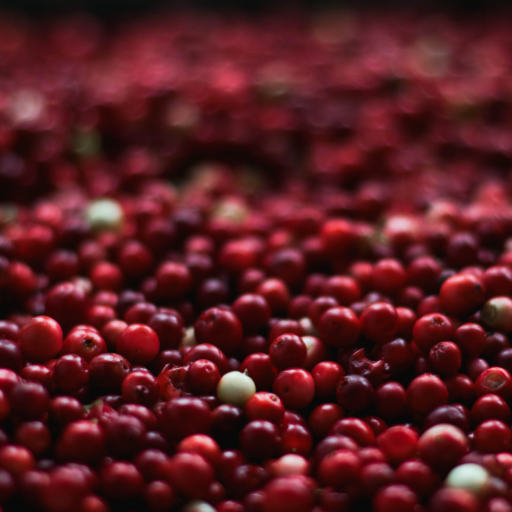The benefits of cranberry for healthy skin


The benefits of cranberry for healthy skin
Skin: The largest organ in our body
The skin is our body’s largest organ. It covers and protects our muscles, bones, the network of nerves and blood vessels and everything else in our body (1). While it is found all over our body, it varies in thickness, colour and texture. For example, our eyelids have the thinnest skin while the soles of our feet have the thickest skin in our body (2).
Our skin is essential to our everyday life in many ways. Aside from protecting our body from injury and harmful external substances and microorganisms, it also regulates our temperature, lets us feel sensations of touch, warmth and cold (1). Our hair and nails are also considered skin, both are made up of skin cells and are a part of the many functions our skin performs (3).
Getting to know your skin can be a big help when it comes to knowing how to take care of it. There seems to be a lot to work on, but don’t get overwhelmed! There are simple ways to approach skin care. Let’s take a look!

Our skin: Up close and personal
Our skin is a good indicator of our health. Oftentimes, when someone is sick, this can be evident in their skin (3). This vast organ is made up of three main parts:
- Epidermis, which is the outer layer of our skin. It is a network of cells that serves as the body’s first resistance against injury, bacteria, viruses and infections. Our hair and nails grow from this layer of our skin, as an added barrier of protection for our body (4).
- Dermis, which is a dense network of specialised proteins under the epidermis. It is made up of fibres surrounded by proteins that contain the blood, lymphatic vessels, our nerves and sweat glands (4).
- Subcutis, which is a specialised layer under the dermis. It contains a network of fibres and fat cells that protects the body from outside trauma and insulates the body from cold. The body’s energy is stored in this layer (4).
Aside from these main layers of the skin, let’s not forget our hair and nails. While we often consider them as aesthetic parts of our body, that's not all they are for.
Our hair grows from new cells that multiply on our epidermis. It serves many important functions that keep our body protected, such as:
- keeping us warm by preserving the heat in our body,
- shields sensitive areas such as the nose, eyes and ears from dust and other small particles, and
- moderating the amount of light that goes through our eyes (1).
Meanwhile, our nails grow from a protein called keratin, which also makes up our skin and hair. They support and protect the tips of our fingers and toes, which enables us to perform simple motor tasks such as picking up objects (5).
Now that we are a little bit more familiar with how our skin works, let’s move on to how you can take care of it yourself.
Skin care and you
It’s important to keep our skin healthy, so we can go about our everyday lives well-protected and without any discomfort. It doesn’t have to be complicated and filled with expensive skin care products.
Healthy skin can also help delay natural ageing and prevent skin diseases (6). You can start caring for your skin with these easy tips:
- Be gentle to your skin. Keep baths short and use warm water. Avoid strong soaps and cleansers, moisturise regularly and shave carefully (7).
- Protect yourself from the sun. Wear sunscreen and protective clothing when appropriate as too much sun exposure can lead to many skin problems (7).
- Avoid excessive smoking and drinking. Smoking and drinking can cause stress that depletes the skin of oxygen and nutrients and can damage collagen production (7).
- Eat a healthy diet. Keep your diet filled with fruits, vegetables, whole grains and lean proteins. Of course, regularly drink plenty of water to stay hydrated as it keeps your skin healthy (7).
A healthy diet and lifestyle can help you look and feel great. You can choose to boost your skin care regimen with supplements for healthy skin.
Support skin health with cranberry
A healthy diet includes plenty of fruits in a variety of forms. These fruits can include apples, bananas, grapes and berries (8). Berries, in particular, are a good source of potassium or fibre. But recent research suggests that berry fruits can be a rich source of phytochemicals with antioxidant effects that can help boost our body’s defenses (9).
Cranberries are a particular kind of berry that grows from low and woody vines, and were primarily used by Native Americans for various foods and medicine to treat wounds (10). As the popularity of cranberries rises as a superfood that can address multiple health problems, can we truly rely on the different cranberry benefits for skin?

Cranberry benefits for skin
Cranberries are rarely consumed fresh and can primarily be ingested as cranberry juice. Cranberry supplements can also harness its benefits for the skin and introduce the following benefits:
- Cranberries are rich in vitamin C, which is essential in the production of collagen (11). Cranberry benefits for skin include helping maintain and support collagen formation, which can significantly improve your skin’s hydration, elasticity, and texture (12).
- Cranberry intake can also help support hair health via collagen production, which safely and effectively promotes hair growth (13).
- Cranberry benefits for skin also include maintaining and supporting our hair and nails’ growth and thickness. Cranberry supplements provide colloidal silica that plays an important role in repairing connective tissues in our hair and nails (14).
If you are looking for supplements that can give a healthy boost to your skin care regimen, consider cranberry supplements.
You can include cranberry in your supplement subscription from Vitable Australia. This vitamin delivery service lets you choose custom vitamins that are delivered straight to your doorstep! This vitamin delivery may just be what your skin needs to get that healthy glow. Build your very first supplement subscription and get a Vitable daily vitamin pack now!
Find out more about other supplements that can support skin health:
Zinc | Iron | Astaxanthin | B complex | Calcium Plus | Vitamin B12 | Ginkgo Brahmi
*Always read the label. Follow the directions for use. If symptoms persist, talk to your health professional. Vitamin and/or mineral supplements should not replace a balanced diet.
References:
- Rady Children’s Hospital San Diego Content Team. “Skin, Hair and Nails”. Rady Children’s Hospital San Diego: Rchsd.Org. Published on https://www.rchsd.org/health-articles/skin-hair-and-nails/. Accessed December 2, 2021.
- Stanford Children’s Health Content Team. “Anatomy of the Skin”. Stanford Children’s Health: Stanfordchildrens.Org. Published on https://www.stanfordchildrens.org/en/topic/default?id=anatomy-of-the-skin-85-P01336. Accessed December 2, 2021.
- Better Health Channel Content Team. “Skin explained”. Better Health Channel: Betterhealth.Vic.Gov.Au. Published on https://www.betterhealth.vic.gov.au/health/conditionsandtreatments/skin#hair-and-nails-and-the-skin. Accessed December 2, 2021.
- Choi, J. & Minochi, R. “Skin structure and function”. The Australian College of Dermatologists: Dermcoll.Edu.Au. Published on https://www.dermcoll.edu.au/atoz/skin-structure-function/. Accessed December 2, 2021.
- Better Health Channel Content Team. “Nails - finger and toenail problems”. Better Health Channel: Betterhealth.Vic.Gov.Au. Published on https://www.betterhealth.vic.gov.au/health/conditionsandtreatments/nails-fingernail-and-toenail-problems#structure-of-the-nail. Accessed December 2, 2021.
- Mayo Clinic Content Team. “Skin care: 5 tips for healthy skin”. Mayo Clinic: Mayoclinic.Org. Published October 15, 2019 on https://www.mayoclinic.org/healthy-lifestyle/adult-health/in-depth/skin-care/art-20048237. Accessed December 2, 2021.
- The Royal Women’s Hospital Content Team. “Caring for your skin”. The Royal Women’s Hospital: Thewomens.Org.Au. Published on https://www.thewomens.org.au/health-information/staying-well/tips-for-staying-well/caring-for-your-skin. Accessed December 2, 2021.
- Blumberg, J. B., Camesano, T. A., Cassidy, A., Kris-Etherton, P., Howell, A., Manach, C., Ostertag, L. M., Sies, H., Skulas-Ray, A., & Vita, J. A. “Cranberries and Their Bioactive Constituents in Human Health”. National Center for Biotechnology Information: Ncbi.Nlm.Nih.Gov. Published November 6, 2013 on https://www.ncbi.nlm.nih.gov/pmc/articles/PMC3823508/. Accessed December 2, 2021.
- Paredes-López, O., Cervantes-Ceja, M. L., Vigna-Pérez, M., & Hernández-Pérez, T. “Berries: Improving Human Health and Healthy Aging, and Promoting Quality Life—A Review”. National Center for Biotechnology Information: Ncbi.Nlm.Nih.Gov. Published November 6, 2013 on https://www.ncbi.nlm.nih.gov/pmc/articles/PMC3823508/. Accessed December 2, 2021.
- Neto, C. and Vinson, J. “Herbal Medicine: Biomolecular and Clinical Aspects”. National Center for Biotechnology Information: Ncbi.Nlm.Nih.Gov. Published 2011 on https://www.ncbi.nlm.nih.gov/books/NBK92762/. Accessed December 2, 2021.
- Redmond, E. J., Murphy, C. F., Leonard, J., Faulds, K., Abdelfadil, S., Crowley, V. E., Lynch, T. H., & Manecksha, R. P. “The influence of dietary supplementation with cranberry tablets on the urinary risk factors for nephrolithiasis.” National Center for Biotechnology Information: Ncbi.Nlm.Nih.Gov. Published July 23, 2018 on https://pubmed.ncbi.nlm.nih.gov/30039387/. Accessed December 2, 2021.
- Bolke, L., Schlippe, G., Gerß, J., & Voss, W. “A Collagen Supplement Improves Skin Hydration, Elasticity, Roughness, and Density: Results of a Randomized, Placebo-Controlled, Blind Study”. National Center for Biotechnology Information: Ncbi.Nlm.Nih.Gov. Published on October 17, 2019 on https://www.ncbi.nlm.nih.gov/pmc/articles/PMC6835901/. Accessed December 2 2021.
- Ablon, G. “A 3-Month, Randomized, Double-Blind, Placebo-Controlled Study Evaluating the Ability of an Extra-Strength Marine Protein Supplement to Promote Hair Growth and Decrease Shedding in Women with Self-Perceived Thinning Hair”. National Center for Biotechnology Information: Ncbi.Nlm.Nih.Gov. Published on November 5, 2012 on https://www.ncbi.nlm.nih.gov/pmc/articles/PMC3509882/. Accessed December 2, 2021.
- Barel, A., Calomme, M., Timchenko, A., Paepe, K. D., Demeester, N., Rogiers, V., Clarys, P., & Vanden Berghe, D. “Effect of oral intake of choline-stabilized orthosilicic acid on skin, nails and hair in women with photodamaged skin”. National Center for Biotechnology Information: Pubmed.Ncbi.Nlm.Nih.Gov. Published on October 26, 2005 on https://pubmed.ncbi.nlm.nih.gov/16205932/. Accessed December 2, 2021.
